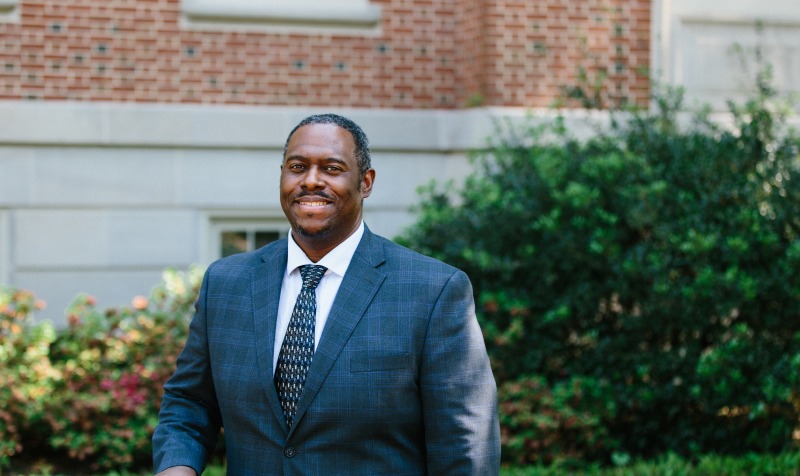Education
- Ph.D. 2003 – University of North Carolina at Chapel Hill
- M.P.A. 2001 – University of North Carolina at Chapel Hill
- M.A. 1999 – Wake Forest University
- B.A. 1997 – University of North Carolina at Wilmington
Areas of Expertise
- Critical Race Studies and Black Education
- School Desegregation and Resegregation
- Social Context of Schooling (Urban & Rural)
- Qualitative and Mixed Research Methodologies
- Interdisciplinary Foundations of Education
- (Un)Conscious Bias Identification and Intervention
- Intersections of Equity, Innovation, and Health
Background
Sherick Hughes has spent more than 20 years investigating and addressing equity issues at the intersection of theory, policy, and practice. He has applied a variety of research methods that inform international dialogues on how inequitable social structures are developed, reproduced, and resisted; including the processes of learning and unlearning intergroup biases. Hughes’ contributions to the academy were recognized by the American Educational Research Association (AERA) in Washington, DC in 2016, when he received one of the association’s highest honors, the Distinguished Scholar Award. Most recently, his textbook on autoethnography research methods earned the 2020 Society of Professors of Education book award. The textbook demonstrates applications of autoethnography as an educational tool for individuals and small teams to begin unlearning intergroup biases and learning to recognize, resist, and redress the inequitable social structures that are manifestations and reproducers of our biases.
Research
Sherick Hughes is one of the pre-eminent scholars of critical race studies and Black education and social context of schooling in urban and rural settings. He has over 60 current and forthcoming publications, including articles and reviews accepted for publication in high-impact peer-reviewed journals (e.g., Educational Researcher, American Educational Research Journal, Educational Policy, International Journal of Qualitative Studies in Education (QSE), Educational Studies, Urban Review, Urban Education, and Teachers College Record. His work has been used widely (for example, to inform an educational equity argument before the Supreme Court of North Carolina; and to inform popular culture Netflix series, “The Patriot Act” hosted by Hasan Minaj).
